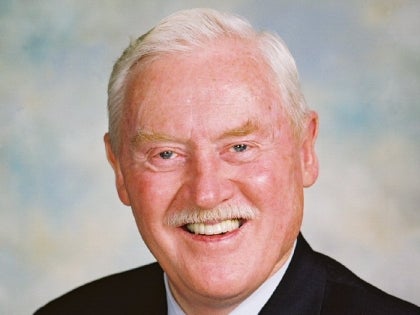
SENATE PASSES BILL TO FACILITATE EARLY DETECTION OF BREAST CANCER
The New York State Senate today passed legislation to provide stronger preventative health care for women. The bill (S.1883A), sponsored by Senator John Flanagan (R-C-I, East Northport), requires insurance companies to cover the cost of supplemental screening for women who have dense breast tissue or who are at greater risk of being diagnosed with breast cancer.
According to leading medical studies, breast cancer is five times more likely in the 40 percent of women who have dense breast tissue but mammograms alone miss up to 40 percent of tumors that are present in women with dense breast tissue. A recent Harris Interactive survey found that 95 percent of women do not know their breast density, even though it is a risk factor, and only one in 10 women find out about breast density from their physician.
JoAnn Pushkin of Dix Hills, a breast cancer survivor-turned-advocate and co-founder of D.E.N.S.E. (Density Education National Survivors’ Effort), was diagnosed later than necessary because her annual mammograms were unable to detect a tumor through dense breast tissue. Ms. Pushkin worked closely with Senator Flanagan’s office to write the legislation and continues to work with him to make sure that the measure becomes law in New York State.
"I had a tumor that went undetected year after year on a mammogram and it was missed because my breast density drastically interfered with the effectiveness of a mammogram,” Ms. Pushkin said. “I was never told about my own density, never told it interfered with a mammography and never referred on for further screening. When women aren’t informed about their own breast density, and its inherent risk, we are denied the opportunity and choice to protect and advocate for ourselves. I am profoundly grateful to Senator Flanagan for embracing the concept of this legislation and fully supporting it with the efforts of his office.”
The legislation would also require that every report a radiologist issues to a patient following a mammogram include information on breast density and information on the availability and usefulness of further screenings. This information will empower women to be more informed about their own medical situation so that they are better equipped to speak with their physicians and make decisions about their own health care.
“There will be an untold number of women who will not have to face the horror of a late stage cancer diagnosis if this bill becomes law,” Ms. Pushkin said. “The very first sentence of this legislative journey, which will prove life saving for so many NY women, will begin with, 'Senator Flanagan listened.’”
The bill has been sent to the Assembly.